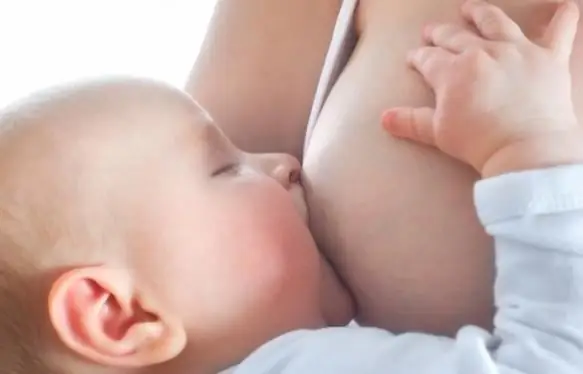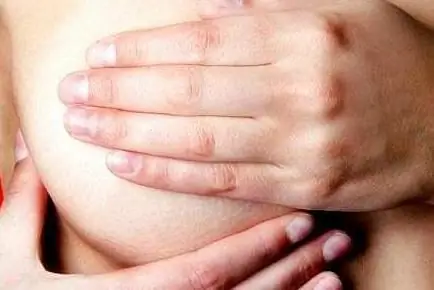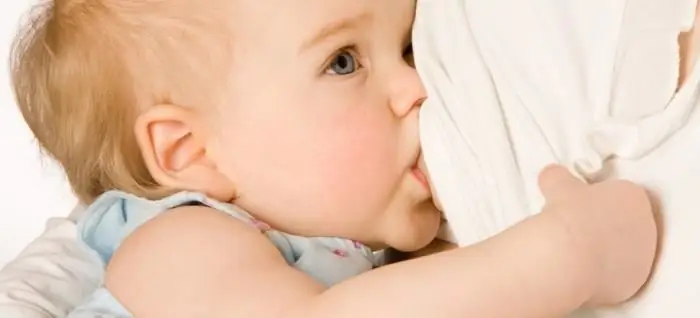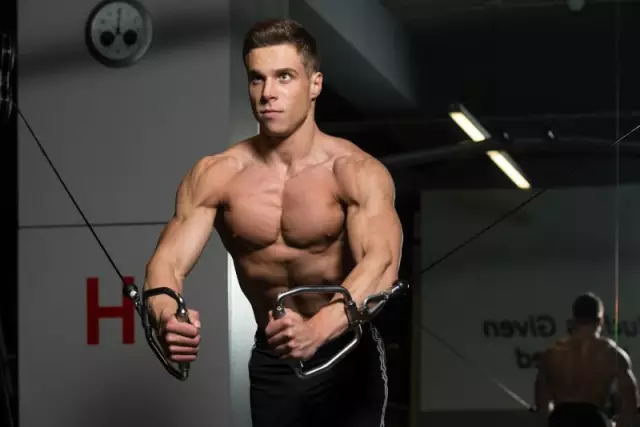- Author Curtis Blomfield blomfield@medicinehelpful.com.
- Public 2023-12-16 20:44.
- Last modified 2025-01-23 17:01.
Every mother who put her own newborn baby to her breast for the first time experiences a storm of emotions. After all, this little man, who has just come into this world, is its continuation. Now almost every woman knows about the undeniable benefits of breastfeeding and wants to feed her baby for as long as possible.

Why does it often happen that a young mother begins to experience unpleasant emotions instead of the joy of feeding? Unfortunately, a woman sometimes feels simply unbearable pain in her chest. It is very difficult for a nursing mother to cope with this problem herself, but she does not know who to turn to for help. Quite often, this leads to the fact that a woman decides to stop breastfeeding altogether.

On parenting forums where young mothers talk about various topics, such a complaint is not uncommon. Many women who are faced with this problem write: “I am breastfeeding - my chest hurts, advise something.” Sometimes a woman does not even realize thatWith your problem, you can contact a specialist - a breastfeeding consultant. A breastfeeding consultant will not only explain why breasts hurt, but a breastfeeding mother will also learn how to deal with this problem and how to avoid such troubles in the future. First of all, every woman should remember the main thing: breastfeeding is a natural process that in no case should cause pain and negative emotions.
So, let's look at the causes of the problems of many mothers, for whom the phrases "breastfeeding" - "chest pain" have become synonymous. In fact, the reasons may be different, let's deal with the main ones.
I breastfeed - my chest hurts: causes of the problem and methods of struggle
- The first painful sensations a woman can experience immediately after childbirth. Unfortunately, not all maternity hospitals can help a mother by showing in practice how to properly attach a baby to the breast. But it depends on the correct grip whether the nipple will be injured during feedings. The child should capture not only the nipple, but also the areola around it. If the first time the baby did not manage to capture the breast correctly, then do not let him suck in this way. Gently but firmly take it away from the child - to do this, insert your little finger into the corner of the baby's mouth and open the gums. Then again try to attach the baby to the breast, if he fails, then help him by slightly squeezing the areola around the nipple with your fingers and directing it into the baby's mouth.
- Painful sensations are experienced by many women 2-3 days after childbirth, whenmilk starts coming in. The breast may become hard and hot, and some may even have a fever. This is due to the filling of the milk lobes and ducts in the chest. If your baby can't handle that much milk, it's important to pump until soft, checking carefully to make sure there aren't any lumps or lumps left. This can be done with a breast pump or manually, and you can also ask for help from maternity hospital workers who know how to express milk correctly. In no case do not leave such a problem unattended, otherwise you risk earning lactostasis or mastitis.
- If, nevertheless, lactostasis (blockage of the milk ducts) could not be avoided, then it is necessary to act as follows. Attach the child as often as possible to the diseased mammary gland, during feeding, choose a position in which the child's chin will be directed towards the stagnation. If the baby is not coping, then express the breast before feeding, and then give the empty one to the hungry baby. In addition, before starting feeding, you can apply a warm compress to the stagnation site and lightly massage the diseased gland.
- If cracks appear on the nipples, then use special ointments that are sold in pharmacies to treat them. Remember that nipple cracks are a gateway for infection, and if a crack is left untreated, a nursing mother risks getting mastitis, an inflammation of the mammary glands. At the first signs of mastitis (pain, high fever), you should consult a doctor - a gynecologist or surgeon.

If you do everything right, then the phrases “breastfeeding” - “chest hurts” will have nothing to do with you, and breastfeeding will bring real pleasure to you and your baby.






